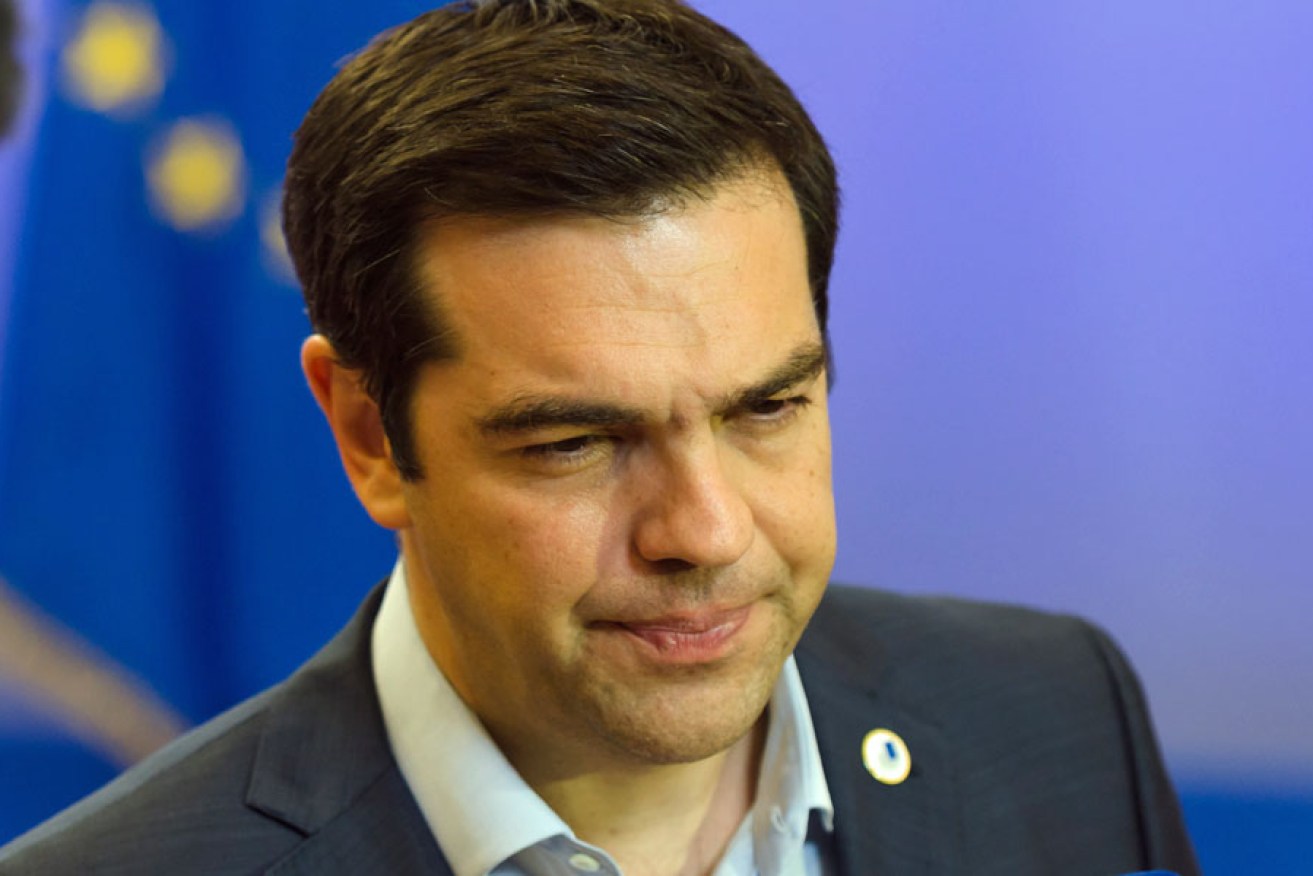Eurozone leaders have finally struck a deal on a bailout to prevent debt-stricken Greece from crashing out of the euro, forcing Athens to push through draconian reforms in a matter of days.
After gruelling 17-hour talks on Monday during which the future of European integration hung in the balance, leftist Greek Prime Minister Alexis Tsipras accepted terms set by his distrustful partners.
The deal requires Greek parliament to approve a raft of market-oriented laws by Wednesday as a sign of good faith and face scrutiny by the International Monetary Fund (IMF) for compliance.
Only then will the 18 other eurozone leaders start negotiations over what Greece is to get in return: a three-year bailout worth up to 86 billion euros ($A128.68 billion) its third rescue program in five years.
“EuroSummit has unanimously reached agreement,” EU President Donald Tusk said.
“All ready to go for ESM (the eurozone’s bailout fund, the European Stability Mechanism) programme for Greece with serious reforms and financial support.”
The last-ditch deal is aimed at keeping Greece’s economy afloat amid fears its cash-starved banks were about to finally run dry and trigger its exit from the single currency.
“Grexit has gone,” European Commission President Jean-Claude Juncker told AFP after the talks, ruling out the threat of a departure from the euro which could have potentially destabilised the global economy.
A weary Tsipras insisted the deal was good for Greece, even though analysts say the terms are in some respects tougher than those Greek voters had rejected on his recommendation in a referendum just one week ago.
“We fought a righteous battle to the end,” Tsipras said.
The deal, Tsipras argued, includes help to ease Greece’s huge burden of debt and revive its crippled banking system.
“The great majority of Greek people will support this effort,” he added.
But Tsipras now faces a tough task selling the deal to the Greek people, parliament and his radical Syriza party, which shot to power in January on the back of promises to end five years of bitter austerity under two previous bailouts.
Greece’s public servants are being called to stage a 24-hour strike for Wednesday, the first since Tsipras took power.
Haralambos Rouliskos, a 60-year-old economist who was out walking in Athens, described the deal as “misery, humiliation and slavery”.
The eurozone creditors “are trying to blackmail us,” said Katerina Katsaba, a 52-year-old working for a pharmaceutical company.
Faced with a deeply distrustful eurozone after six months of tense meetings, the 40-year-old Tsipras had to agree to demands that critics say rob Greece of financial independence.
Europe’s first step will be to push the deal through several national parliaments, many in countries that are loath to afford Greece more help.
Germany’s Bundestag is likely to vote on Friday, provided the Greek parliament rushes through four new reform laws by Wednesday.
Greece has to make sweeping changes to labour laws, pensions, VAT and taxes, according to the deal document.
Despite strong opposition, Tsipras also yielded to a plan to park assets for privatisation worth up to 50 billion euros in a special fund.
Some 25 billion euros of the money in that fund will then be used to recapitalise Greece’s cash-starved banks.G





